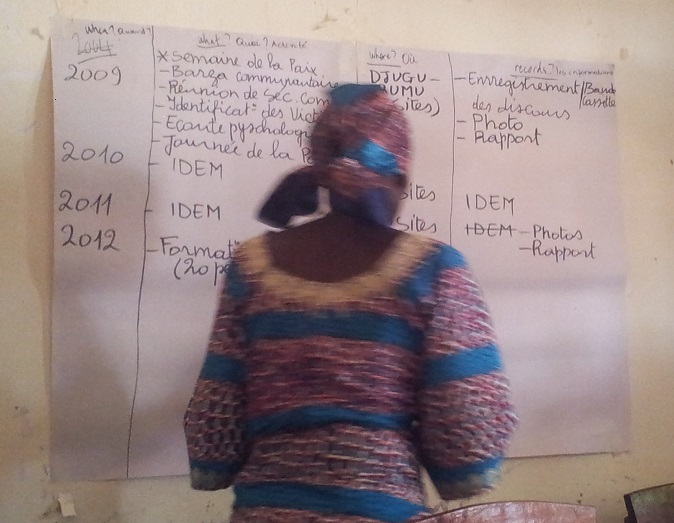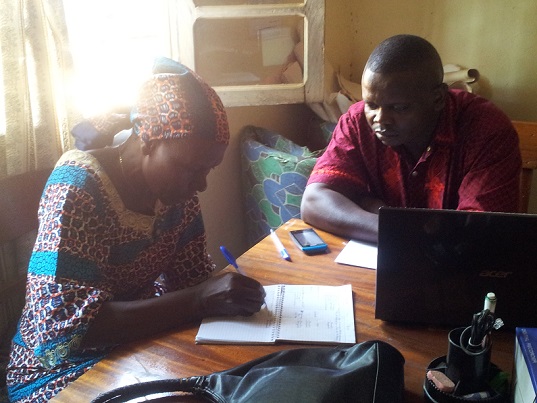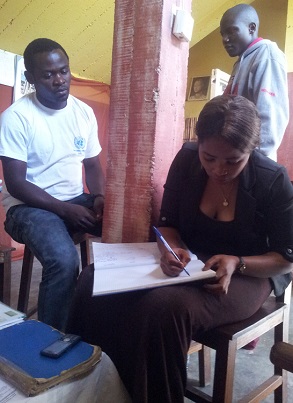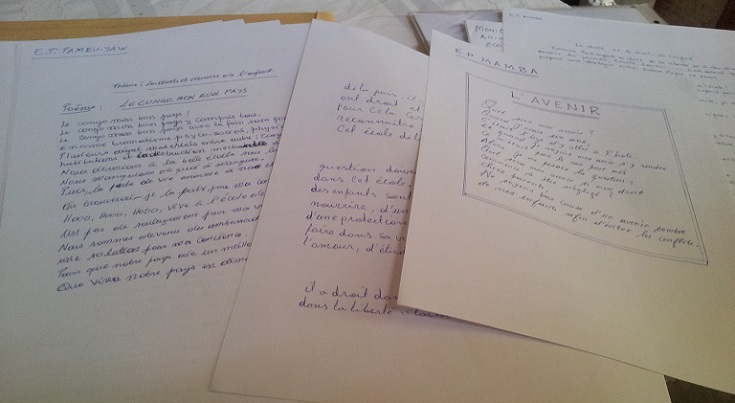At the invitation of Trust Fund for Victims (TFV) and Swisspeace's Archives and Dealing with the Past project, Catherine Kennedy, the SAHA Director, visited the Democratic Republic of Congo (DRC) in June 2013 to assess ways in which archival processes and outreach could be used to strengthen the work of local NGOs funded by the TFV.
Catherine spent a week in Bunia consulting with representatives from organisations operating the Ituri District in Northeastern DRC, an area where peace remains fragile after an estimated 50000 people perished and over half a million were displaced by conflict between 1999 and 2003. These organisations are, with the support of the TFV, developing and running programmes aimed at helping victims of crimes against humanity to rebuild their lives and communities. Key victim groupings include victims of torture and / or mutilation, victims of sexual violence, and child ex-combatants.
Key issues up for (lively) discussion included:
- the relationship between documentation and dealing with the past efforts in combatting impunity and promoting accountability in post-conflict situations,
- the ethics of creating and managing records in contexts where histories are contested and where both personal and information security risks shape the way in which documentation projects are designed and implemented,
- the challenges of working in low-resource environments where access to physical and digital archival storage are limited and ensuring the long-term utilities of the record.
Initial, informal training was also conducted with individuals working on two particular projects:
Reseau Haki na Amani (RHA)'s Histoire Reconcilié Caravane de la Paix (Peace Caravan) project targeting victims and their communities trying to mobilize communities throughout the Ituri District for fostering community dialogue.
'A l'Ecole de la Paix' (At the School of Peace), a project for young people who have grown up and matured in a climate of violence, with the aim to create a culture of peace in environments most affected by violence.


This on-site training involved exploring organisational functions and activities and working with existing records on the practical development of filing plans and management systems to embed work-centred processes for the effective and ethical creation, collection, storage, retrieval and repurposing of documentation to feed into their community efforts around conflict resolution and peace-building.


SAHA, as part of an ongoing collaborative project with Swisspeace and TFV, will now be contributing to the planning and delivery of a more intensive workshop bringing together memory practitioners working in other post-conflict contexts around the world with DRC-based NGOs to explore some of the concepts underpinning memory work in post-conflict situations, to share methodologies for collecting and sharing testimony, and to develop a longer-term strategy for collective record-keeping archival strategies in support of this important work in Ituri.









